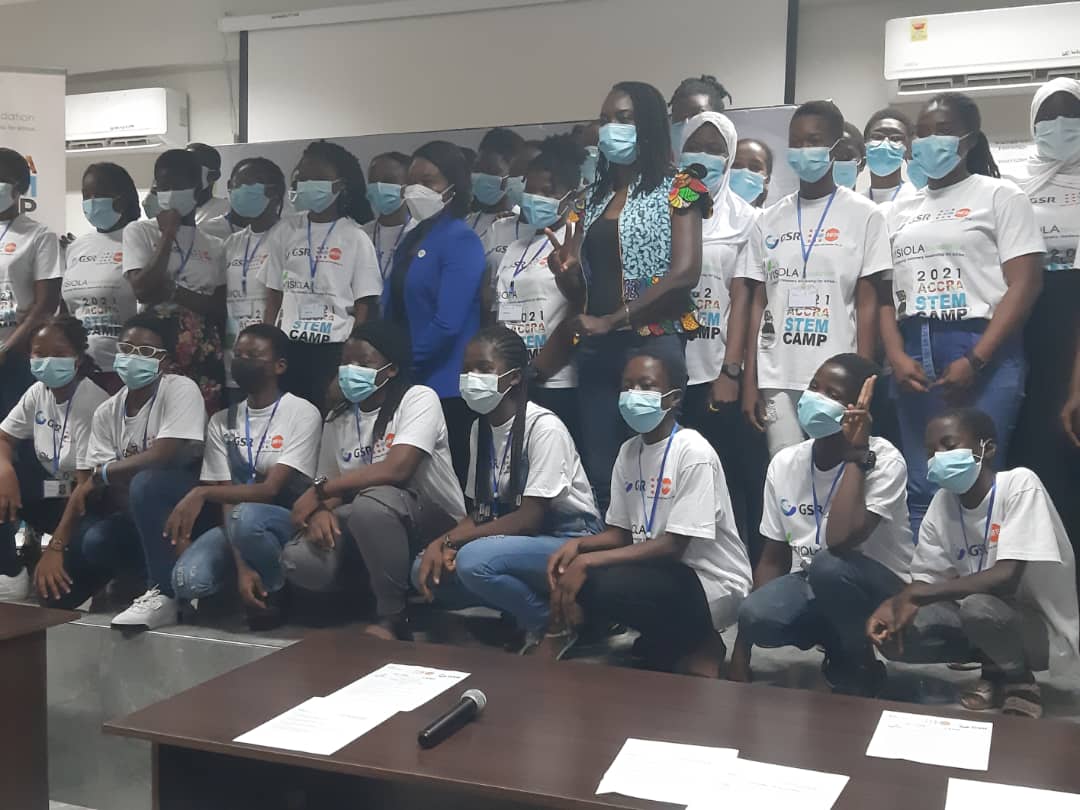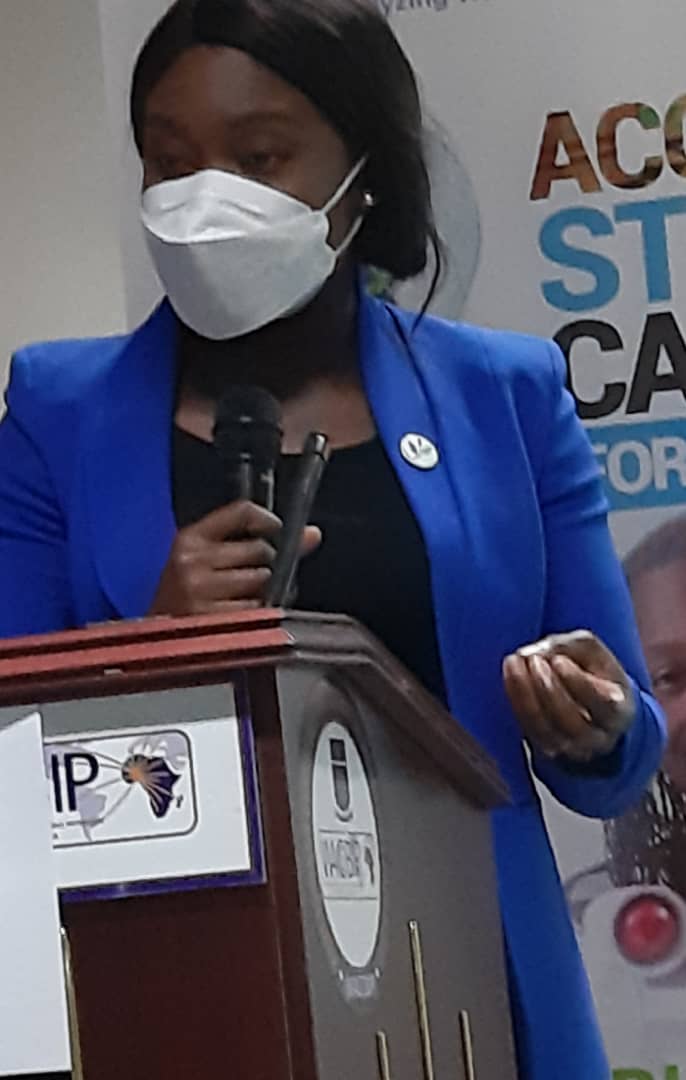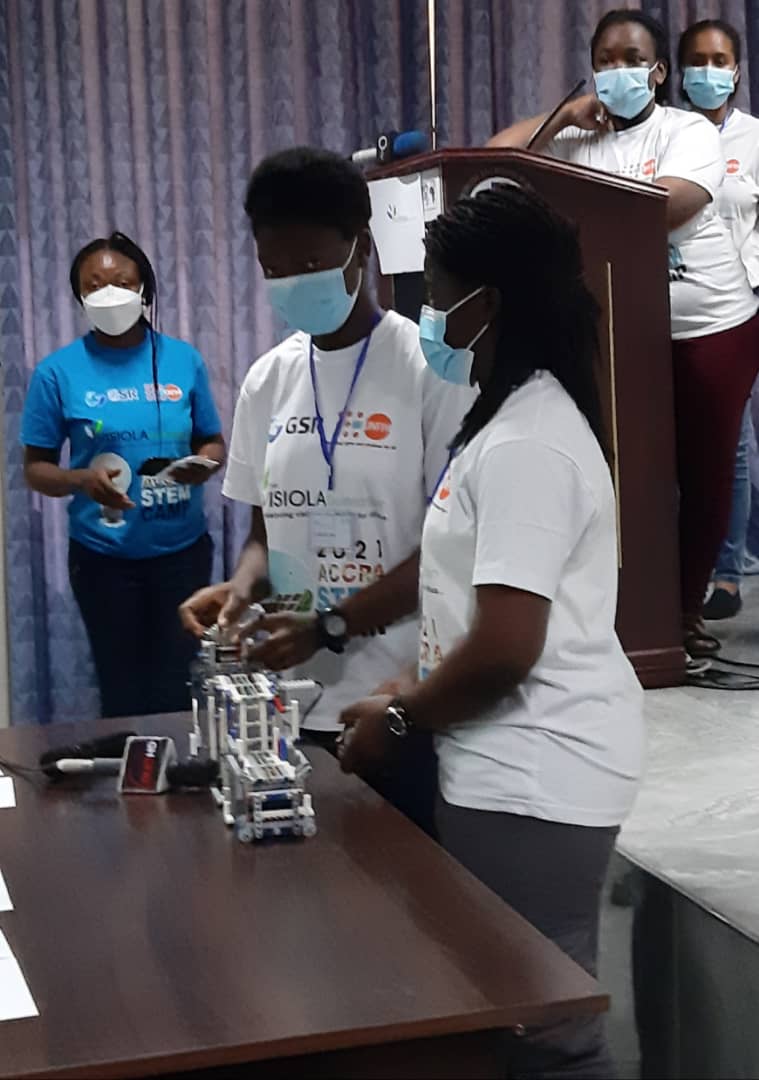
40 girls complete STEM camp in Accra
Forty adolescent girls from various African countries have completed a Science, Technology, Engineering and Math (STEM) camp designed to stimulate their interest in the fields of STEM and to expose them to the renewable energy options available.
The girls, between the ages of 13 to 18, were from Ghana, Ethiopia, Togo, Nigeria and Rwanda participated in the eight-days camp organised by the Visiola Foundation with support from the United Nations Population Fund (UNFPA) and GSR.
Advertisement
Held under the theme, “Renewable Energy and Robotics for Sustainable Development, the camp took place at the West African Centre for Cell Biology of Infectious Pathogens (WACCBIP), Department of Biochemistry, Cell and Molecular Biology, University of Ghana.

PHOTO: Mrs Lade Araba speaking at the function
Renewable Energy
At the camp, the girls were taken through the science of renewable energy and were tasked to build demo projects to generate electricity, using solar, hydro and wind power.
They showcased the prototype renewable energy devices at the closing ceremony, after which they were awarded certificates and prizes.
The girls were also equipped with knowledge and information about their sexual and reproductive health, sexual and gender based violence and how they can be assertive and empowered in way that can readily position them for work related opportunities.
Addressing the participants, the Co-Founder and President of the Visiola Foundation, Mrs Lade Araba, said that theFoundation aims to encourage more girls to pursue careers in STEM by gaining their interest early and facilitating their success.
She said, for the girls, their participation in the STEM camp was “their walk into greatness” and urged them “to embrace their greatness because every single one of you is destined for greatness.”
Mrs. Araba appealed to the government to invest in STEM education for the girl child to increase the number of women in the STEM fields and enable them to contribute to national development.

PHOTO: Two of the girls demonstrating how the device their group created functions.
Benefits of STEM
Speaking on behalf of the UNFPA Resident Representative, Mr. Niyi Ojuolape, Mrs Adjoa Yenyi, National Programme Analyst – Adolescent Sexual Reproductive Health, said that STEM camps have a strong potential for increasing girls’ interest in science.
“STEM is not only physics and mathematics, but must be seen as an integration of disciplines that develop creativity, research skills, teamwork and encourage the study of science and technology.
Mrs Yenyi noted however that STEM education lags behind in Africa when compared to the rest of the world and was even lower for girls especially as many factors influence girls’ participation in STEM.
She added that the UNFPA believes that STEM education is an accelerator for the achievement of the Sustainable Development Goal (SDG) agenda on good health and well-being as STEM provides girls much needed health information for proper growth and development including very critical reproductive health information that enables them to make informed choices.
This, she said, will ensure that they are not derailed on their career and growth path by issues such as unplanned pregnancies.